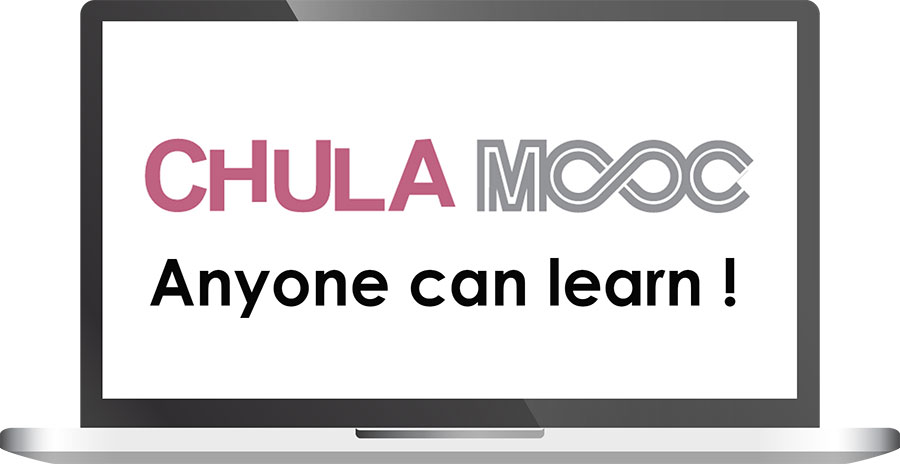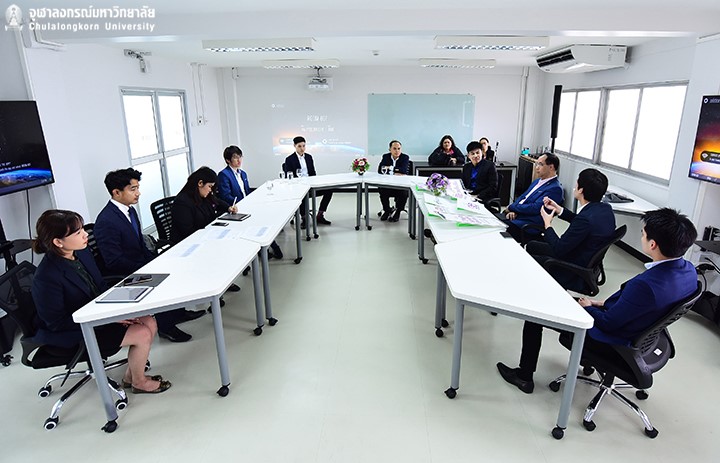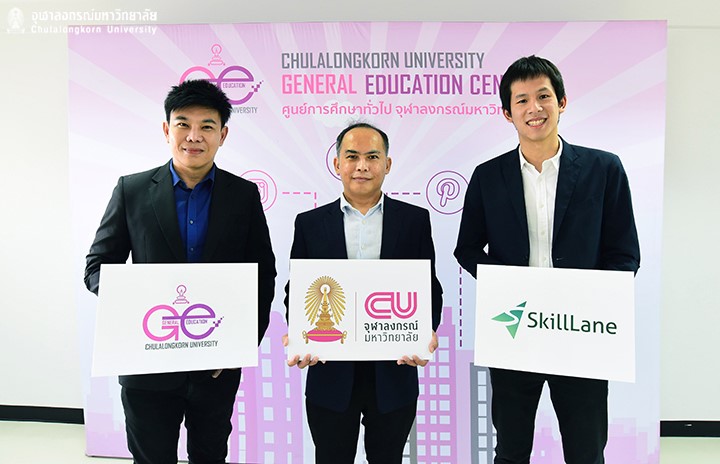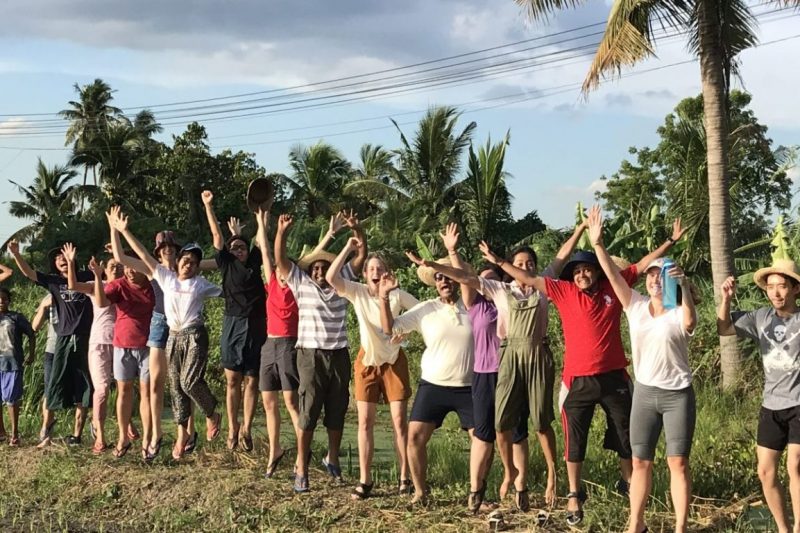Chula MOOC program shares the university’s expertise with the public at large
Over a hundred years ago, a “garden of knowledge” was cultivated on a plot of land beneath the raintrees in central Bangkok. Each year since then, a few hundred young students are selected to savor the fruits of knowledge that are abundant in this garden called Chulalongkorn University.
Today, however, with modern technology, the university is pursuing a broader ambition based on the concept “Everyone can learn”. The garden of knowledge has now expanded beyond the campus boundaries to enrich the lives of anyone who aspires to grow and develop.
The new educational platform, Chula MOOC (Massive Open Online Course), delivers education via internet connections to every corner of the country.
“Our wealth of knowledge and human assets should be accessible not only by our enrolled students, but also by the public at large,” says Associate Prof Dr Naebboon Hooncharoen, Assistant to the President for Academic Affairs at Chulalongkorn University.
Now entering its third year, Chula MOOC offers online courses to all students regardless of age, race, educational background or location. Most significantly, the free-of-charge courses reflect the university’s determination to connect with those who lack the funds for tuition fees.
Since it began in August 2017, Chula MOOC has designed 30 regular courses. The current lineup includes content relating to digital skills, IT, health, art and self-development. As the university’s educational philosophy stresses inclusiveness, there are also online Thai language courses for anyone of any nationality.
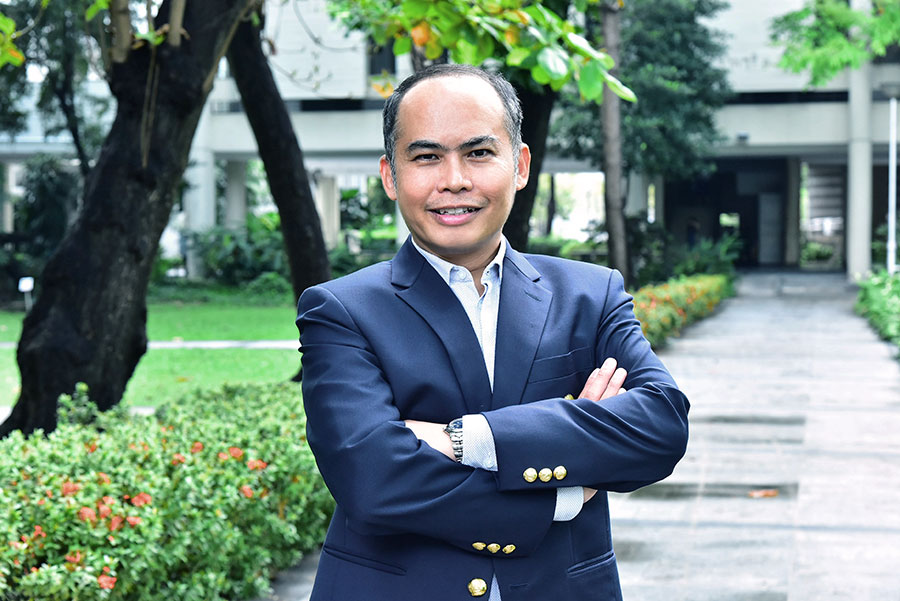
“Chulalongkorn University is the first Thai university to introduce its own MOOC to the public,” adds Assoc Prof Naebboon. “But sooner or later, other Thai universities will offer their individual MOOC platforms.”
Before developing its own MOOC platform, Chulalongkorn University had cooperated with Thai Cyber U, which provided access to an international MOOC platform for joint online courses.
Eventually, the Faculty of Engineering at Chulalongkorn University developed its own MOOC platform called Courseville, enabling the university to design its own courses to fit the needs of academia and local students alike.
Unsurprisingly, the public response to Chula’s free online courses has been overwhelming. When registrations for enrollment were opened, the maximum intake of 2,000 was filled within a few days.
According to Assoc Prof Naebboon, the most sought-after courses are Marketing in the 21st Century, and Infographics: What & How? “Since all of these popular courses would be full within three days,” he says, “we have received a lot of complaints from those who were unable to enter their names soon enough.”
One young knowledge enthusiast, Panyathip Hattakanond, is among the lucky few who was able to register in time. She has enrolled in courses in IT Security and International Online Marketing. “Normally, I explore for more knowledge by myself through internet searches,” she says. “But the amount of information available from the web is so overwhelming that I find it difficult to choose what to learn.
“With MOOC courses, the knowledge overload has been screened and the content designed to suit our needs.”
Also a full-time student in Chulalongkorn University’s Faculty of Communication Arts, Ms Panyathip says she found the MOOC course she took in parallel with her classes at Chula quite appropriate in terms of its content and the length of the course. “The video is engaging and the certificate will prove valuable in my resume,” she says with a broad smile.
With eight years of experience in conducting online courses, the providers of Chula MOOC learned through trial and error about what academic content would meet the public’s needs, and gained more insights into the learning behavior of online students. Once the university’s own MOOC platform was launched, they were able to better tailor the courses to fulfill public expectations.
With 25% of its online students having passed and earned certificates, Chula MOOC is considered successful. Statistics show that for online courses in general, an average of 10% of those who register complete the courses and obtain certificates.
“This means that people who enroll in our courses have taken their education seriously,” Assoc Prof Naebboon says proudly.
In line with public demand, Chula MOOC will eventually develop more courses on human resources development in organizations, especially skill development. And in the near future, the platform will be opened to public participation, with interested individuals allowed to develop content of interest into online courses.
Interested members of the public can learn more at https://mooc.chula.ac.th/ or https://www.facebook.com/CHULA
This article was originally published in CU Around March 2018, Vol.61, Issue 3, Page 8, available at https://www.chula.ac.th/magazine/7629/
Related article: https://www.bangkokpost.com/life/social-and-lifestyle/1469817/making-better-connections
A PIONEERING online learning platform, created by CU partnering with SkillLane to encourage knowledge-sharing
Chulalongkorn University has partnered with 39 universities of the Upper Central (UC) region and SkillLane -Online Learning Platform to develop GenEd UC Cloud Learning. The university partnerships then collaborate in creating online course and sharing the content through the platform networking. The students from diverse faculties could learn GenEd courses across the universities. Since launching in 2020, online courses featuring over 40 courses from some universities are available to students via internet connection such as sustainable society course, Fun with AI, and others that can be accessed by https://geneduc.skilllane.com/. It is anticipated that we are looking at expanding cooperation with many universities to build stronger education platform and continues to begin the next phases in 2020.
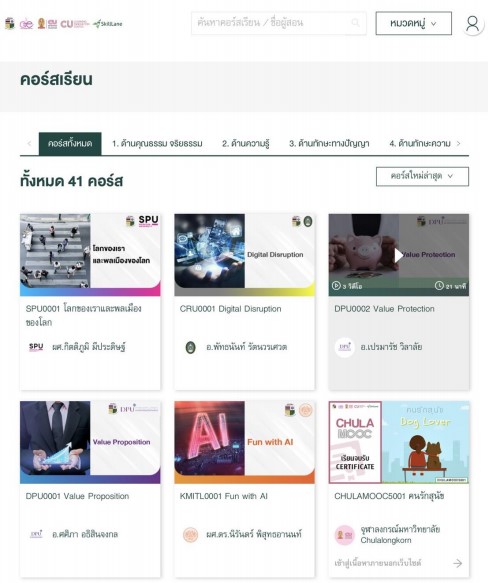
CU teams up with SkillLane to develop GenEd Blended Learning
Due to the impact of disruptive technology, PM2.5 as well as COVID-19 pandemic, the strengths of online learning to provide workable solutions and to alleviate the impact. Therefore, CU, in partnership with SkillLane, aims to offer blended learning both online and virtual classroom by developing GenEd blended learning that is accessible through a range of technologies –mobile, tablet, desktop and the Internet in anywhere and anytime, regardless of ethnicity, religion, disability or gender. Moreover, the learning allows students to study at their own pace, so they can arrange a learning schedule that meets their individual needs. Within the courses, online quizzes, assignments, educational materials such as e-lectures, revision lesson, and other types are offered. Currently, we have launched a number of courses that can be viewed via https://www.fair.gened.chula.ac.th/ such as Education for Sustainable Development, Economic Society on Plant Bio-Resources Base, etc.
We assure quality in our online learning to improve the quality of student learning and to generate knowledge and innovation for the creative and sustainable transformation of Thai society.
Previous:
Others
Chula Right Livelihood Summer School (CURLS)
Chulalongkorn University established CURLS, together with Centre for Bhutan Studies & GNH, and Sathirakoses Nagapradipa Foundation (SNF) funded by a Right Livelihood Award Laureate Sulak Sivaraksa.
Improving Teachers’ Digital Literacy
Chula Faculty of Engineering Partners with Learn Education to Improve Teachers’ Digital Literacy

